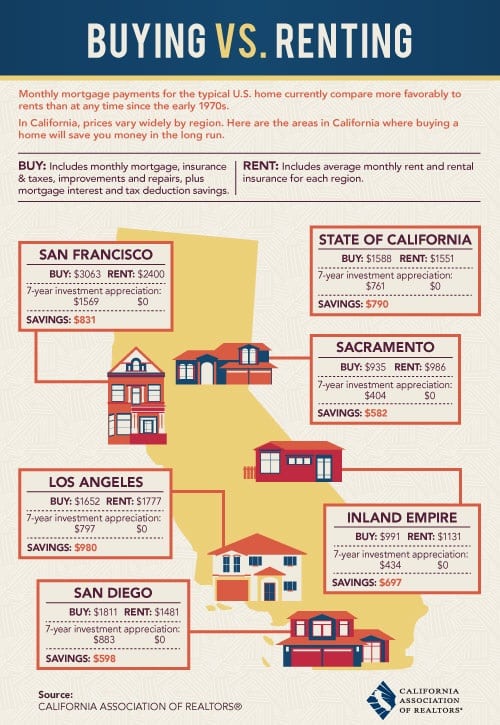
Are you unsure whether you should own a condo or a house? We are here to help you find out the difference and which is better for you—which is more expensive, which is better for long-term investment among other things. But first, we have to get clear on what a condominium actually means.
Condominium is actually a type of ownership, not a building per se. It is a large property complex divided into individual units and sold. So it can be high-rise buildings, townhouses, even individual houses. Ownership usually includes a nonexclusive interest in certain “community property” like the floor, walls, sidewalks, stairwells, and exterior areas. Condominium management is usually made up of a board of unit owners who sees to the day-to-day operation of the complex, such as lawn maintenance and snow removal.
A general requirement of a condo owner is monthly payments to a Homeowner’s Association (HOA), which is in charge of property upkeep.
The main difference between an apartment and a condo is ownership, where an apartment is generally rented, while a condo is owned.
Okay now that we have that cleared, let’s dive into some things to consider in choosing between a condo or a house:
Think about your lifestyle.
In general, condo-living is simpler. A condo would be a better fit for someone who does not want to maintain a yard. If you don’t mind cutting grass or maintaining a landscape yourself, then a house may be a good choice.
Security is also generally more strict in condos. CCTVs and people in charge of security are available for you to help keep your home safe. Lock the door and you’re good to go. In home ownership, you will have to set these yourself.
Condos are often built in more suburban areas, close to shops, schools and other essential establishments for your convenience. Some houses are not close downtown. Amenities like pools, recreation centers and others are also available for condo owners.
Privacy
There’s definitely more privacy with a single-family home. You don’t have shared walls with anybody. So if you value that more, you’re better off owning a house.
Budget
Land and location is the most important piece when you’re looking at how much the home is going to cost. If your budget doesn’t allow for a single family home, then a condo would be a great place to start in terms of getting your own home. However, you will have to pay for condo fees. If you don’t want to pay for these extra fees, so then a single family home not located in an HOA is better for you. However, for a single-family home, you will also have to set aside a chunk of your budget for emergency repairs and insurance, so make sure that when purchasing, the property is in mint condition to avoid any hard-hitting financial surprises.
Value appreciation
Both appreciate over time. It’s really a question of what area your property is in and if the real estate market locally is booming. Ask a local real estate agent to guide you.
Property taxes
These are mainly based on the land area. So, depending upon where you live, condos may have lower property values because of the size of the property.
Resale value
As long as the property is well maintained, both will sell fairly well. It really depends on what your city or area demands.
To sum up, here’s a breakdown of the PROS and Cons between a CONDO and a HOUSE.
Condo Pros
- Easy-going lifestyle
- Low-Maintenance
- Often close to transit, amenities, shops
- Often more approachable for first-time buyers
Condo Cons
- Privacy, noise
- Less Flexibility
- Condo fees – some of the utilities, maintenance, repair bills
- Can be very expensive
House Pros
- More flexibility and freedom to do renovations, repairs and upgrades
- Privacy, quieter neighborhood
- Unless you are in an HOA community, no board to approve property changes
House Cons
- More responsibility in maintenance and repairs
- Can be more costly
- Often built farther from downtown
We hope this helps you gain clarity in your decision-making. If you need more assistance, feel free to let us know and we’ll be glad to answer your questions.
Source: Investopedia




